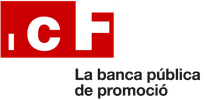This line, which will be activated in the coming months, will promote, among others, projects to promote renewables and energy efficiency, sustainable mobility, water saving, protection of the population from the increased risk of extreme weather events, reduction of polluting emissions and conservation of biodiversity. The resources to be provided by the Department of Territory will come from the Climate Fund, which is fed by 50% of the revenues obtained from the tax on CO₂ emissions from mechanically driven vehicles and 20% of the collection of the tax on installations that have an impact on the environment.
The Government of Catalonia announced on Wednesday, within the framework of the United Nations climate change summit (COP29) taking place in Baku, Azerbaijan, that it is working on a new line of subsidized loans for companies to promote climate change adaptation and mitigation projects.
The Department of Territory and the ICF are finalising specific financing that will combine the interest rate subsidy with resources from the Climate Fund, which is managed by the Department of Territory, Housing and Ecological Transition, with financing from the ICF. In this way, companies that want to promote decarbonization projects or adaptation to the effects of climate change will have loans with better conditions.
This line will complement the current offer of loans for sustainable investments that the ICF offers to the economic fabric. Sustainability and decarbonization are part of the strategy of the public promotion bank, which currently already has several products focused on sustainable finance. The collaboration between the Department of Territory and the ICF will serve to encourage companies to launch climate change adaptation or mitigation projects.
Carbon Fee Rebate
The measure, which will become effective in the coming months, was announced by the Director General of Climate Change and Environmental Quality, Sonsoles Letang, during a COP29 side event on the leadership of developing states and regions in the field of climate finance, which is the central theme of the summit on a global scale. The director explained that "this is an innovative financing proposal with which several sectors are very hopeful and that will surely be replicated soon by other regions, because it increases business competitiveness".
The projects that will be financed will be, in general, those that internalise their environmental costs, discourage unsustainable models and are consistent with the strategic lines of Climate Action (SDG13) and the Next Generation funds promoted by the European Union.
Less vulnerability
Some of the areas of action envisaged are the promotion of renewable energies and energy efficiency, the decentralisation of networks and energy self-consumption, sustainable mobility, water efficiency and saving, the conservation and fight against the loss of biodiversity, the guarantee of protection of the population against the increased risk of extreme weather events, the adaptation and reduction of the vulnerability of economic sectors and natural systems, the modification of production processes to reduce polluting emissions and the transformation of the agro-industrial model into a new model that guarantees food sovereignty.
These new loans will be aligned with the Catalan Strategy for Adaptation to Climate Change, Horizon 2030 (ESCACC30), which establishes various operational objectives and measures in the financial field, among others, to reduce the vulnerability of the sector to the impacts of climate change.
